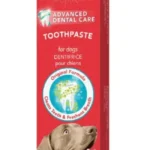Bichon Frises are affectionate, fluffy little dogs known to bring joy to any home. They are cheerful, charming and a favorite among dog lovers. Sadly, despite the happiness they bring, most owners ask, what do Bichon Frise usually die from?
We will help you understand the common causes of death in Bichon Frises. Read on to find out about the health conditions they’re most prone to. Hopefully, this guide will give you tips to ensure your Bichon lives a long and healthy life.
How Long Do Bichon Frises Live?
First, let’s address the question of their lifespan. On average, Bichon Frises live 12 to 15 years. Some live longer with proper care. Their longer lifespan, compared to larger breeds, is one reason why they’re so beloved by families and individuals alike. Here are more insights about the life cycle of a dog and what they need at each stage.
As Bichons approach their golden years, they get serious health problems. Thus, it is important to understand what Bichon Frise usually die from to improve your care.
Factors Affecting Bichon Frise Lifespan
- Genetics: Some Bichons inherit predispositions to conditions like bladder stones or dental disease, which can complicate their overall health.
- Lifestyle: Exercise, nutrition balance and mental stimulation all play critical roles in your dog’s quality of life.
- Preventative Care: Routine vet visits and early detection of health issues help avoid health risks. Thus, keeping your pup healthy longer.
What Do Bichon Frise Usually Die From? Common Health Problems
No dog breed is immune to health challenges. Bichon Frises have specific vulnerabilities due to their genetics and anatomy. Common health problems they face include:
1. Cancer
It remains one of the leading causes of death in older Bichon Frises. Common types include lymphoma, mast cell tumors and hemangiosarcoma.
Smaller breeds like Bichons live longer than larger dogs. This blessing may be a curse that increases their lifetime exposure to factors that could trigger abnormal cell growth. Additionally, genetics may predispose the breed to specific cancers. Therefore, you need to be vigilant about their health and checkups.
Keep an eye out for unexplained lumps, changes in appetite or unusual lethargy. Regular veterinary check-ups, including screenings for early cancer detection, can make a significant difference in treatment options and outcomes.
2. Heart Disease
Another substantial factor when asking what do Bichon Frise usually die from is heart disease. Particularly mitral valve disease (MVD). It is a condition that weakens the heart’s mitral valve, reducing its ability to pump blood efficiently.
Heart valve degeneration is common among small breeds, including the Bichon Frise. Their high-energy lifestyle can also put stress on their cardiovascular system over time.
Symptoms like persistent coughing, rapid breathing, or reduced activity levels warrant prompt evaluation from a veterinarian. Medications, lifestyle changes and special diets can help manage heart disease and improve your dog’s quality of life.
3. Kidney Failure
Chronic kidney disease (CKD) is another common cause of death in Bichon Frises, especially in their senior years. It leads to the gradual decline of kidney function, eventually impacting overall health.
Some Bichons may inherit a genetic predisposition to kidney damage. Additionally, factors like dietary imbalances and other chronic conditions accelerate kidney wear over time.
Ensure your Bichon drinks plenty of water and receives a vet-approved diet low in sodium and phosphorus. Routine blood work can help catch CKD in its early stages. Catching it early allows for appropriate treatment with medication and diet adjustments.
4. Bladder Stones
Bladder stones, a painful yet treatable condition, are unfortunately common in Bichons. Left unchecked, they can lead to urinary blockages and other complications.
They are genetically predisposed to difficulties processing certain minerals in their diet. It might result in concentrated urine, which promotes the formation of bladder stones.
Monitor your dog’s bathroom habits for any signs of discomfort or difficulty urinating. A specialized diet and encouraging increased water intake can prevent stone formation. Also, check out for yellow balls in poop.
5. Cushing’s Disease
Cushing’s disease arises when the adrenal glands produce an excessive amount of cortisol. It leads to symptoms like excessive thirst, weight gain, and thinning fur.
The Bichon Frise’s hormonal system is particularly sensitive. The breed more likely to develop endocrine disorders as they age. Early diagnosis is critical. If you notice changes in appetite, urination, or coat condition, consult a vet immediately. Medications or surgery can help manage the condition effectively.
6. Dental Problems
Dental disease may not seem life-threatening. However, it may seriously impact a Bichon’s overall health if left untreated. Gum disease has been linked to systemic issues like heart and kidney disease.
Bichons have small mouths, which makes cleaning their teeth more challenging and increases the risk of plaque buildup and gum infections. Fortunately, you can use brushless toothpaste for dogs to get ahead of this.
Brush their teeth regularly and use dental-friendly toys or treats. Schedule professional dental cleanings for a deeper level of care and reduce risks.
How to Increase Your Bichon Frise’s Lifespan
Genetics play a role in determining what Bichon Frise usually die from. It may seem like there is nothing you can do. There are steps to improve their quality of life and ensure their golden years are happy and healthy.
- Regular Vet Checkups: Vets can spot early signs of disease and recommend preventative measures like vaccinations and screenings.
- Balanced Nutrition: A high-quality diet tailored to their needs can keep your Bichon healthy and active.
- Exercise and Socialization: Daily walks and outdoor activities support their mental and physical health.
- Proper Dental Care: Brushing and professional cleanings can prevent gum disease and reduce the risk of systemic infections.
- Mental Wellness: Bichons are companion dogs and thrive on love and attention. Avoid leaving them alone for extended periods to prevent anxiety or depression.
Why Preventative Care Matters
Understanding what Bichon Frise usually die from emphasizes the importance of preventative care. Many of the conditions discussed, such as heart disease and dental problems, are easy to manage and totally unavoidable with early intervention.
Cherishing your time with your Bichon means focusing on not just quantity but quality of life. Regular vet visits, a nutritious diet, and plenty of love and attention can make all the difference.
What Will You Do?
What do Bichon Frise usually die from? You got your comprehensive answer. We hope our guide helps you to make informed choices that extend their life. Take the time to nurture their health, celebrate their playful spirit and treasure the joy they bring to your life every day.
The truth is, even if you do everything right, nature will eventually take its course. If your pet crosses the rainbow bridge, we hope these memorial sayings for pets carry you through your grieving period.





